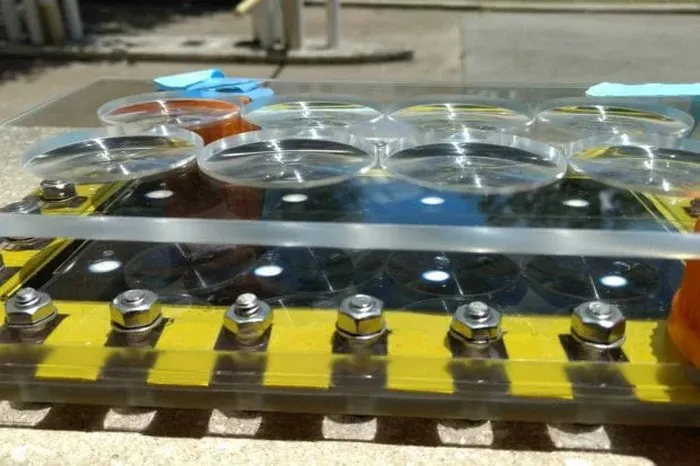Engineers at Rice University have unveiled a groundbreaking desalination technology that promises to revolutionize access to clean water, particularly in off-grid and resource-limited communities. The new system, termed Solar Thermal Resonant Energy Exchange Desalination (STREED), offers a membrane-free, solar-powered solution capable of operating continuously, even in the absence of sunlight.
Traditional desalination methods often rely on energy-intensive processes and delicate membranes that are prone to fouling and degradation. In contrast, STREED employs a novel approach that leverages the principles of resonant energy transfer. By facilitating efficient heat exchange between a heated saline water stream and a counter-flowing air stream, the system maintains a resonant oscillation of thermal energy. This design not only enhances energy efficiency but also allows the system to store and reuse heat, enabling water production to continue during periods without direct sunlight .
The absence of membranes in STREED addresses a significant limitation of conventional desalination systems. Instead of using membranes to separate salt from water, STREED utilizes air as the medium for water vapor transport. Saline water is heated to produce vapor, which is then carried by the air stream and condensed into fresh water, leaving salts and impurities behind. This membrane-free design reduces maintenance requirements and enhances the system’s durability .
In field tests conducted in San Marcos, Texas, the STREED prototype demonstrated the ability to produce up to 0.75 liters of drinking water per hour. Simulations using solar intensity data from various U.S. locations indicated that STREED’s water recovery efficiency surpassed that of systems with static flow rates by 77% over a representative week. Notably, the system maintained high energy-to-water efficiency even in regions with lower solar intensity, highlighting its adaptability to different climatic conditions .
The research team, led by Assistant Professor Alessandro Alabastri and University Professor Naomi Halas, emphasized the system’s potential for scalability and accessibility. By utilizing durable, low-maintenance materials and eliminating the need for complex infrastructure, STREED presents a viable solution for decentralized water purification, especially in remote or disaster-stricken areas .
The development of STREED was supported by the National Science Foundation, Mexico’s National Council of Science and Technology, the Robert A. Welch Foundation, and the U.S. Department of Energy’s Solar Desalination Prize. The team’s findings were published in the journal Nature Water on May 14, 2025 .
Related topics:

